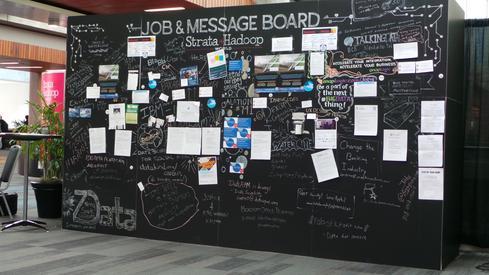9 Tips For Hiring Data Science Talent- Valutrics
Data scientists are the new corporate rock stars. Companies in all industries know they need a strong bench of data science talent to have any hope of becoming the next Uber or Netflix. So now there’s more demand than supply. Here’s what you need to know about recruiting the best and brightest.

(Image: Jessica Davis/InformationWeek)
Data science and data analytics skills are in high demand, and the race is on to attract and hire top-notch professionals who possess these skill sets. That’s no surprise. Establishing a data science practice inside an organization can provide a competitive edge against rivals in an age in which every company wants to be the next Uber or Netflix.
Companies are using data to gain insights into customer needs, provide customers with new products and services, and give themselves an edge against competitors. Having the right professionals to wrangle the data is crucial as organizations collect more than ever before. Complicating matters further, the information being collected is made up of myriad data types, including some that are new to the organization.
As companies look to launch a data science and/or analytics practice internally, they’re competing against each other to woo data science pros, the new rock stars of the business world.
How do you attract them? It isn’t really enough to slap a job ad on LinkedIn or Monster and hope for the best. These professionals are rare and you can’t simply broadcast your message and hope they show up on your doorstep. While you’re waiting, your competitor may be taking your top prospect out to lunch and developing a relationship.
[Data science is an attractive career for women in technology. Read 12 Inspiring Women In Data Science, Big Data.]
Linda Burtch is managing director of Burtchworks, an executive recruiting firm which specializes in finding quantitative professionals for its 120 clients. In an interview with InformationWeek, Burtch said today’s job market for data professionals is the busiest she’s seen during her 30 years in the business.
“This is absolutely the highest demand for this kind of professional that I’ve seen in my career,” Burtch told InformationWeek. And data scientists — quantitative professionals who can work with real-time, streaming, messy data types — are in particularly high demand. There aren’t very many of them.
The industry refers to these rare specialists as “unicorns.” According to Bob Rogers, Intel’s Chief Data Scientist, these professionals typically possess three different skill sets:
- High-end mathematical and statistical knowledge;
- High-level computing skills with programming languages such as Python and Scala;
- Deep expertise in a very specific business or domain, such as healthcare or finance.
It is tough — if not impossible — it is to find a single individual who possesses all three competencies.

